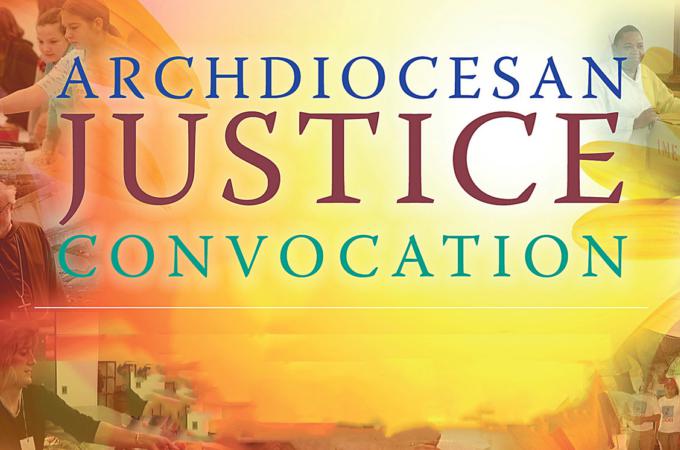How to do social justice
As I worked on the committee for the Social Justice Convocation that takes place Saturday, Oct. 5, at Boston College High School (you can register at the door), one of my tasks was to meet with the keynote speaker and talk about some ideas we (the committee) had about topics for her keynote talk.
Instead of talking, I listened and was inspired from our conversation. I already knew that social justice was doing the work of the gospel, that we learn about it from Jesus' teachings, that it is rooted on Pope Leo the Great's writings and other Church documents. But, at its core, what is it?
We spoke with Janine Carreiro, co-director of Massachusetts Communities Action Network (MCAN), who will be the keynote speaker and will also receive the 2019 Pope Francis Social Justice Award: Faith in Action. The title of Janine's talk is "Interfaith Community Organizing to Promote Social Justice". Her organizing work has led to the training and engaging of hundreds of residents around issues that deeply impact family life, including foreclosure prevention, crime reduction, family division due to deportations, a focus on prevention versus prosecution, and prioritizing youth and their success. The work she's been a part of has led to two increases in the minimum wage, the passage of paid family medical leave and earned sick time, passage of the most progressive criminal justice reform bill in recent history, as well as the creation of the Consumer Finance Protection Bureau. She is currently working on campaigns to support immigrants and local funding for education. She sees it as a moral imperative to elevate the dignity of each person and to build the world that makes that possible.
But that is what she did and continues to do, not how she does it.
My discovery in our conversation was how she does it. I have been talking about social justice for years and doing what I thought was social justice. But my meeting with Janine brought me to a whole new level of understanding of social justice.
The core of social justice is the Gospel truth of loving one another. In relationships with others, we can find the strength and purpose to help and advocate for people and causes beyond our selfish interests and self-imposed boundaries. When a parish works well, it brings together families who care about each other. More than that, when we pray together and break bread together, we become brothers and sisters through the wisdom of the Holy Spirit in the knowledge we are all children of God.
Community Organizing is building relationships, recognizing the Christ in each other, getting out of our own self-imposed limitations, out of our comfort zones, standing up for each other, recognizing racism, injustice, income disparities, hunger . . .
Together as a community of believers, people who know the Gospel story and believers in the kingdom joined by the Holy Spirit we can move mountains.
But it won't happen in one day. Or one week. Or all at once. Each one of us can just work on one relationship at a time. Find one common goal at a time. One step at a time. Social justice is a journey. The work won't get done in my life time. But I am called to push forward. One conference at a time. One workshop, one exhibitor, one meeting, one bulletin note at a time.
The work as I see it is to meet one new person in my parish, then another, be present to each person, then call a meeting, then listen, get to know each person better, help each person know others and find an injustice we can work on. Learn more about it, study it, look for other advocates, and discover how to "action" the issue. Then go to work. Together with purpose in faith we can make the world a better place.
What a powerful message. Please come and talk to me about it. We are all called to this task.
Tim Donohue is a permanent deacon at Holy Name in West Roxbury, a CRS global fellow and a CRS ambassador.



















